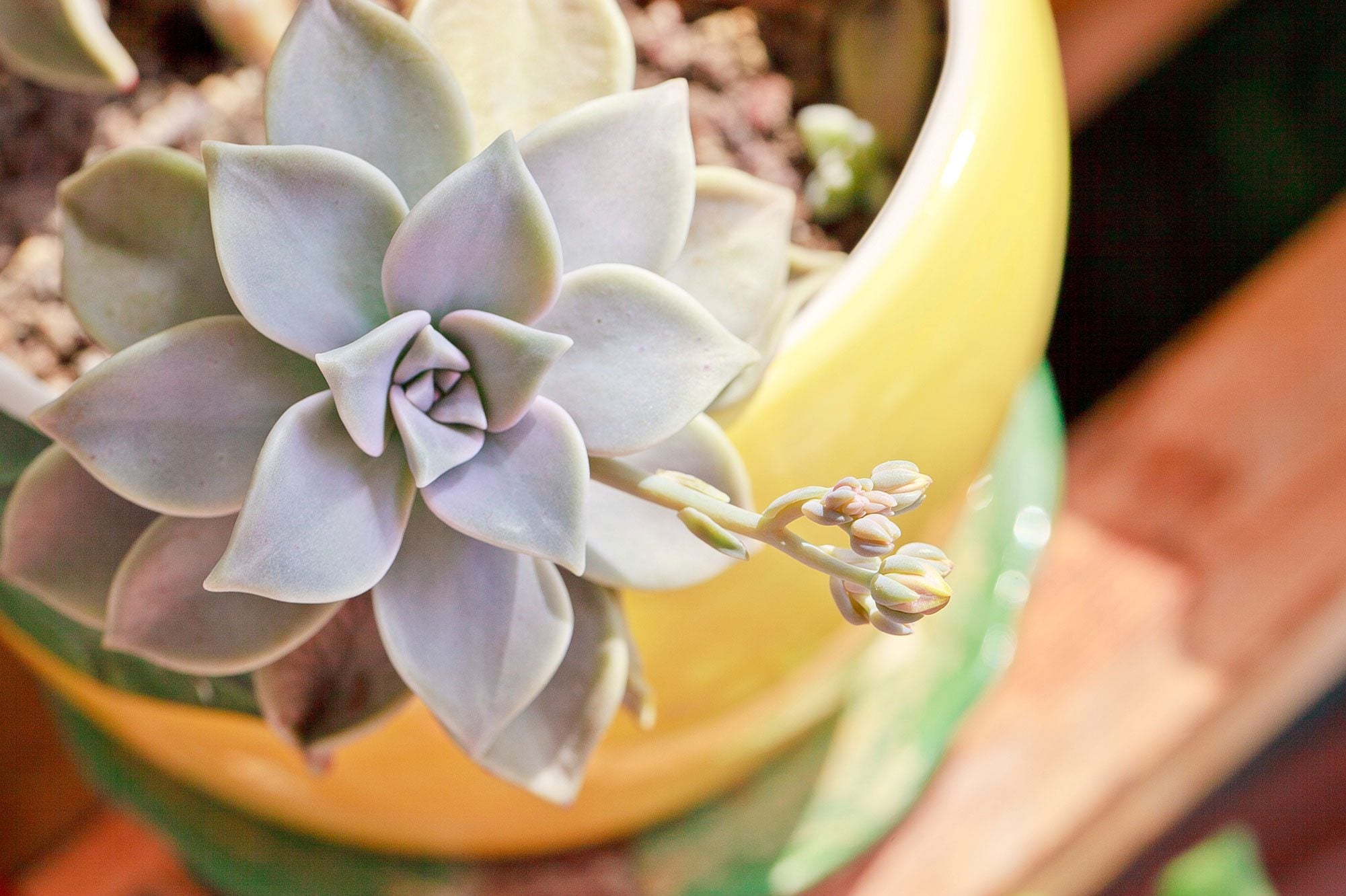Ghost Plant Information: Tips For Growing Succulent Ghost Plants


Succulents are a diverse form of plants that includes cacti and other moisture-storing specimens. Graptopetalum ghost plant develops a rosette shape on stems which may trail or hang. As with most plants in this group, water needs are little and exposure is important. Ghost flower plant care hinges on providing a natural environment that mimics the succulent's native habitat. Tips on how to grow a Graptopetalum will ensure your ghost plant is healthy and enjoyable for many years.
Graptopetalum Ghost Plant Information
Thick, fleshy leaves and stems characterize most succulent plants. Ghost plants (Graptopetalum paraguayense) have thick leaves that hold excess moisture so the plant can withstand periods without rain. The silvery gray to bluish green foliage has a pinkish tinge to the edges of the leaves when they are young. Layers of leaves form the rosette, which range in size from less than an inch (2.5 cm.) across to several inches (7.5 cm.) wide. The plant is related to and resembles Echeveria, which is a common and fairly hardy succulent plant often used in container gardens. These plants have color changing abilities. Full sun is the best location for them, but growing succulent ghost plants in partial shade produces the bluish-gray tones. Full sun plants tend to be yellowish-pink, pearlescent, and slightly translucent. Those in punishing heat turn gray with pink overtones. Full ghost plant information must include the detail that the plant grows from the center of the rosette. This gives mature succulents a rangy appearance, which is easy fix by pinching back. The plant flowers occasionally in spring to summer with airy little yellow blooms.
How to Grow a Graptopetalum
The stems on this plant are fairly brittle and detach easily. This is because in its habitat, Graptopetalum ghost plant reproduces vegetatively. Any rosette that breaks off has the potential to root and start a new plant. Even a leaf that drops off will root below the parent plant and produce a new rosette quickly. The new plant feeds off the leaf until it shrivels up and falls off. By then the new little ghost plant has rooted and sprouted new leaves. Growing succulent ghost plants is ridiculously easy and a great confidence booster for the novice gardener. USDA zones 7b and up are suitable for growing succulent ghost plants. The rules for ghost flower plant care are similar to those for most succulents. Container-bound plants thrive in a mixture of peat, sand, or other grit, topsoil and a little bit of compost. Full sun is the best situation but they will also grow in partial sun with slightly rangy results. Because the stems are so fragile, it is best to pick the best location for ghost plant and then don't move it. Ghost plants need excellent drainage and moderate water. You can tell when to water by sticking your finger in the soil. If it is dry several inches (10 cm.) down or the fleshy leaves are looking shriveled, you should water. Overwatering is a cause of root rots and the plant can get several pest infestations. Fertilize it in early spring and provide water only monthly in winter.
Sign up for the Gardening Know How newsletter today and receive a free copy of our e-book "How to Grow Delicious Tomatoes".

Bonnie Grant is a professional landscaper with a Certification in Urban Gardening. She has been gardening and writing for 15 years. A former professional chef, she has a passion for edible landscaping.